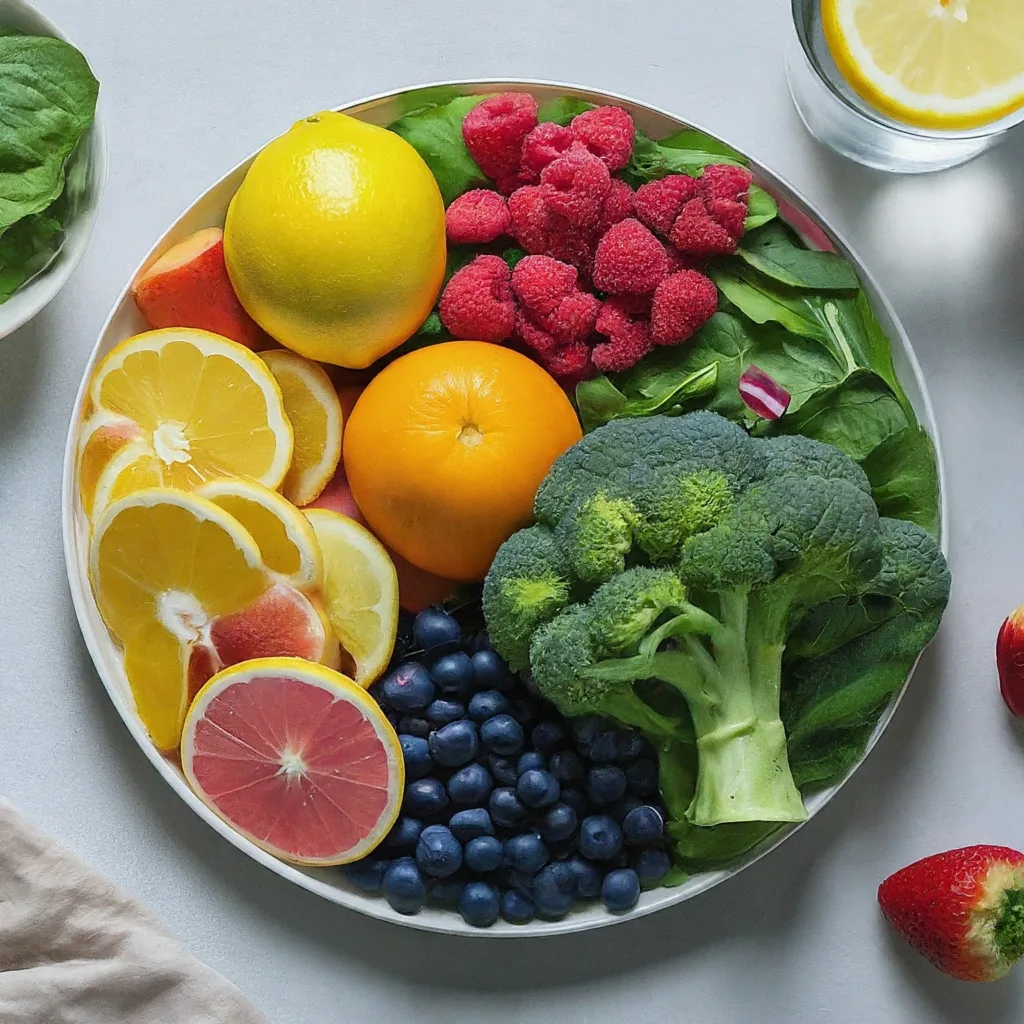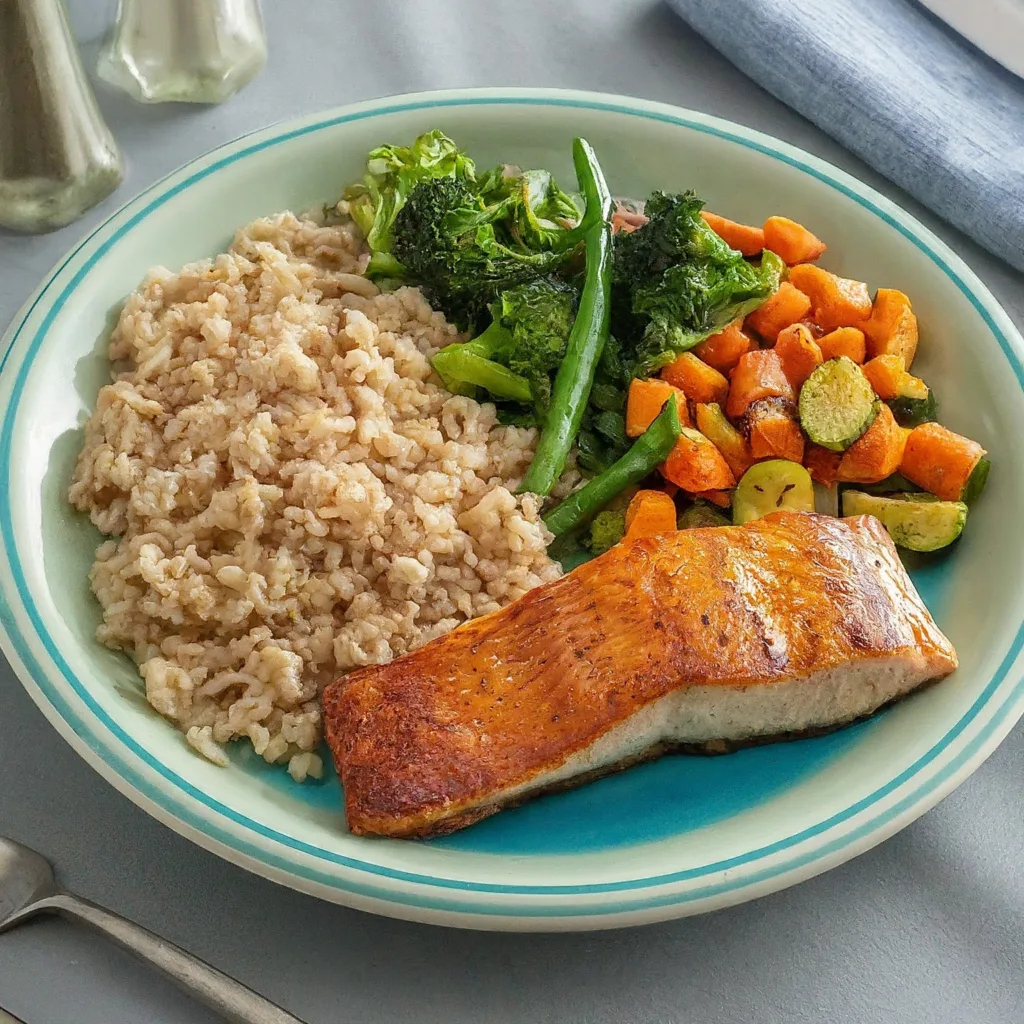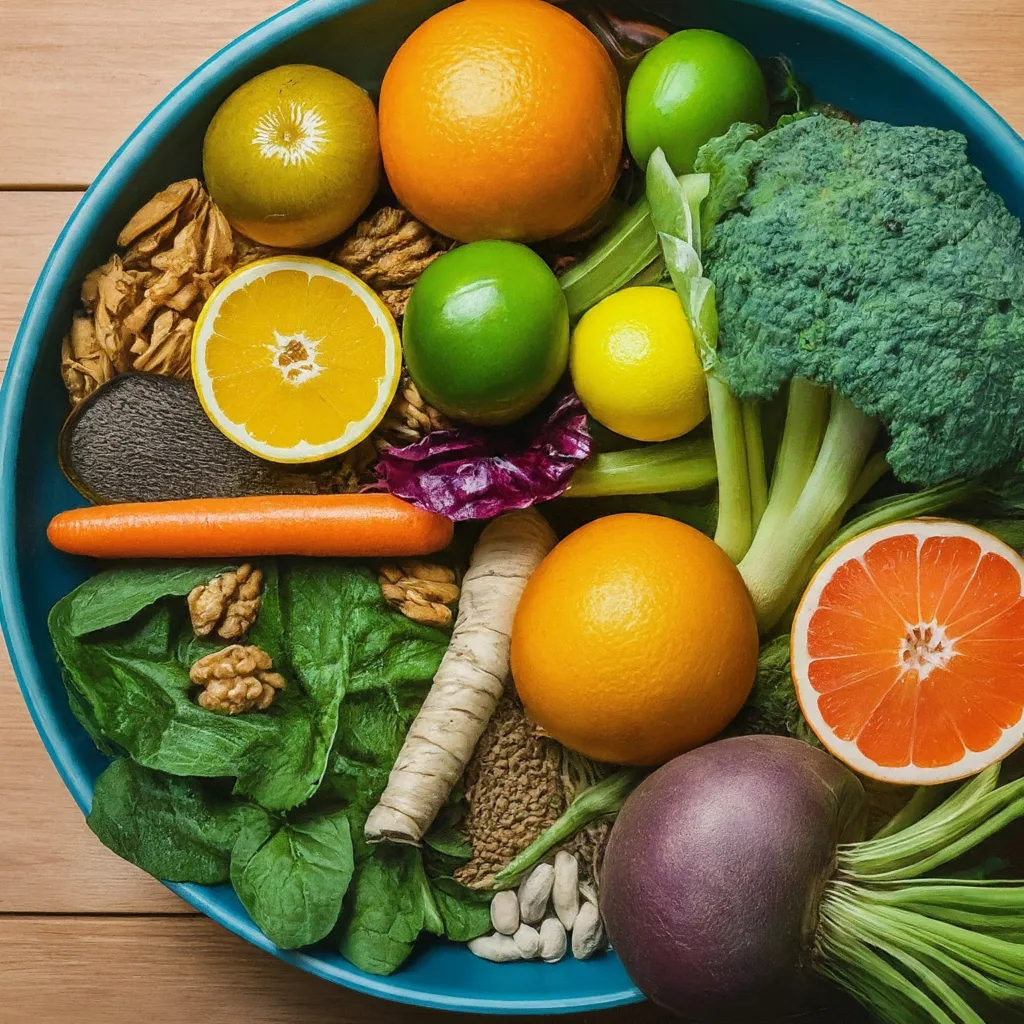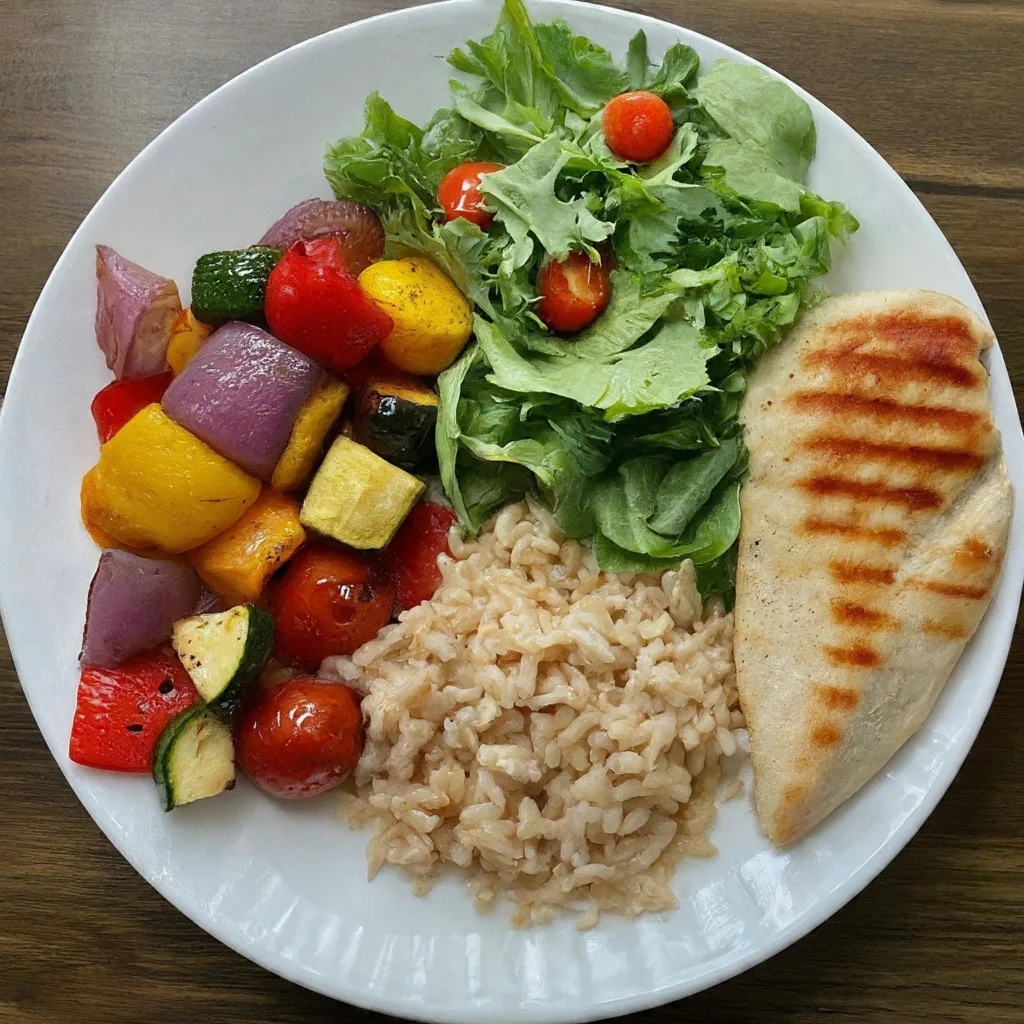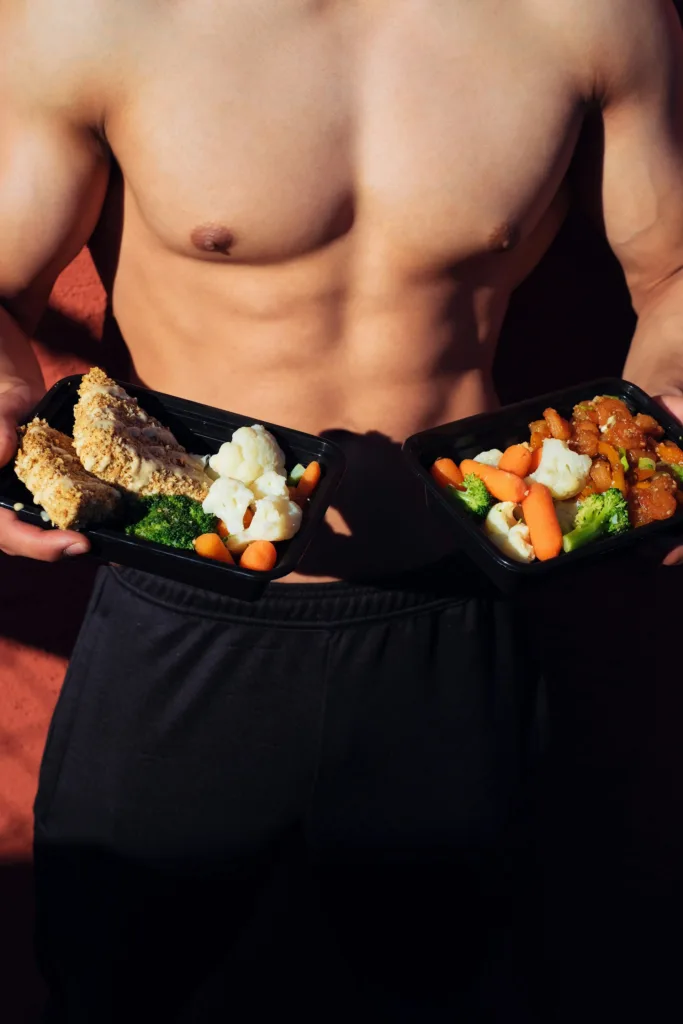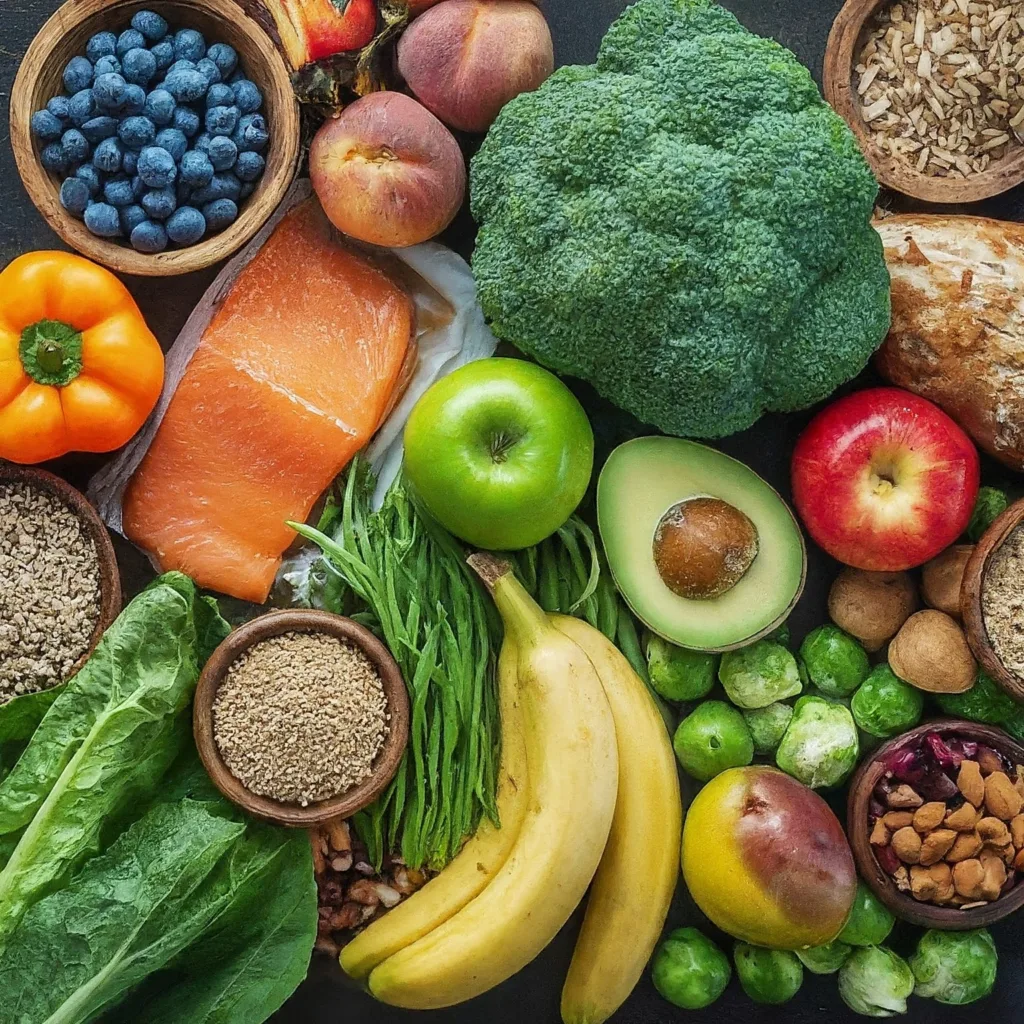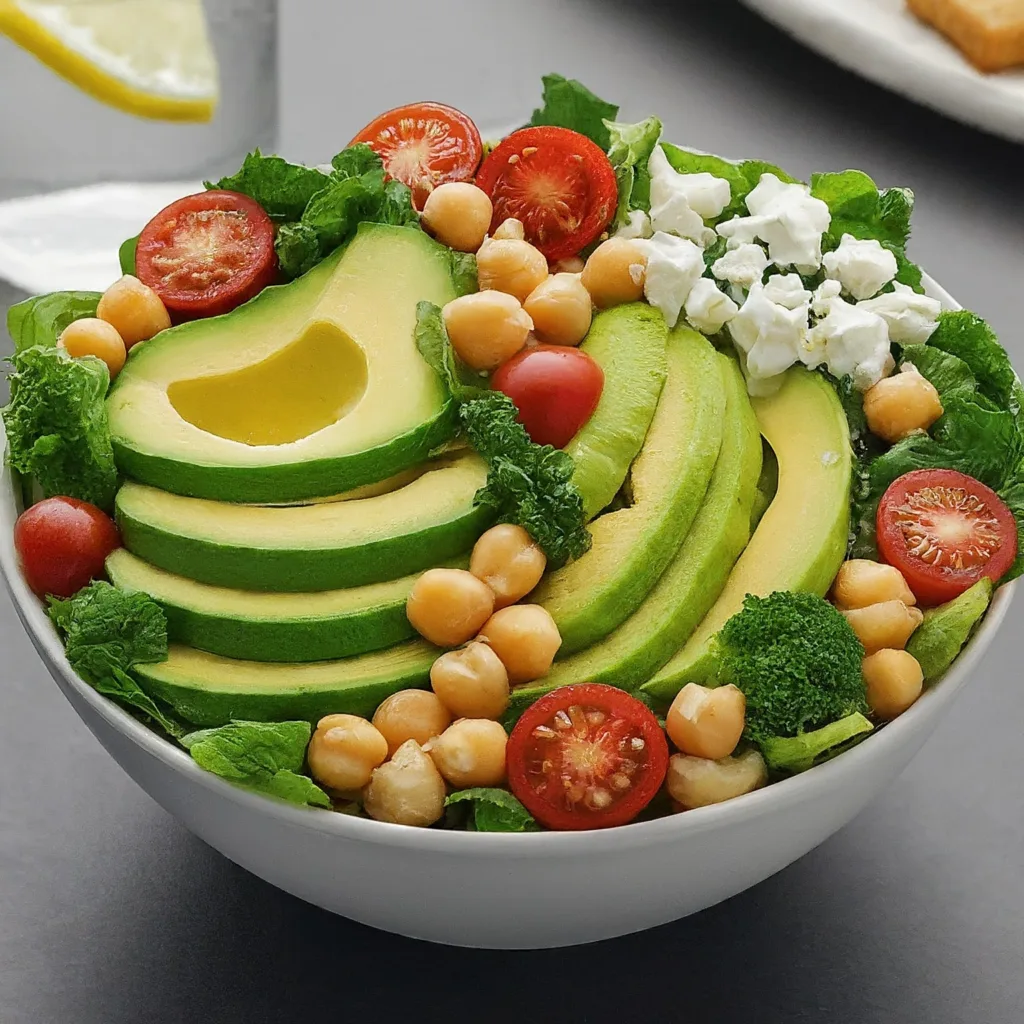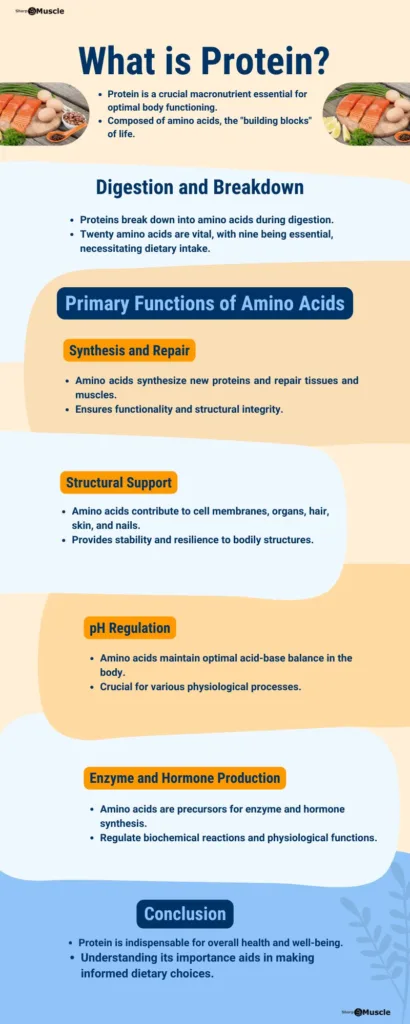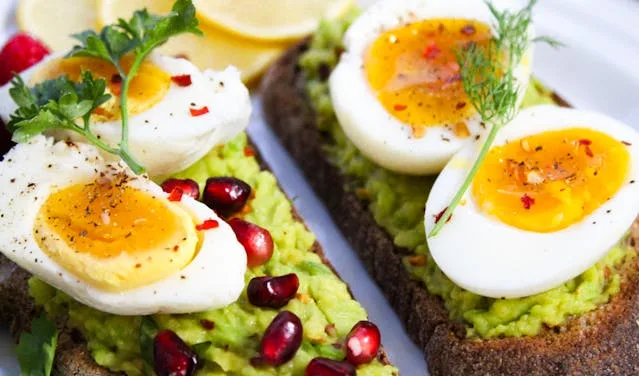Starting your 2500-Calorie diet is a journey towards optimal nutrition and sustained energy levels. In this article, we’ll delve into a detailed food list and meal plan, offering expert advice and practical insights to make your dietary transition seamless and enjoyable.
In This “2500-Calorie Diet”
Understanding Caloric Needs for Muscle Building
While much dietary advice primarily focuses on weight loss, specifically shedding body fat, it’s crucial to recognize that revealing toned muscles is a key aspect. Reducing excess body fat not only unveils defined muscles but also facilitates engagement in muscle-building exercise routines. Maintaining a lower body fat percentage enhances the effectiveness of your muscle-building efforts.
For effective fat loss, it’s essential to consume fewer calories than you expend daily. On the flip side, muscle gain necessitates a caloric surplus, where you consume more calories than your body utilizes. These additional calories play a vital role in the regeneration of damaged muscle tissue, especially after intense workout sessions.
Failure to meet your caloric requirements for growth and repair impedes the development of larger, stronger muscles. When seeking advice on how many extra calories you should consume for muscle gain without accumulating excess fat, the answer isn’t a one-size-fits-all solution. Variability exists among individuals, encompassing factors like genetics, metabolic rate, and existing muscle mass.
As a general guideline, it’s often suggested that maintaining a weekly caloric surplus of at least 2500-calorie diet can contribute to gaining approximately one pound of lean muscle mass. Although this figure is a broad estimation tailored for the ‘average exerciser,’ it underscores the importance of surplus calories for muscle development.
For those aiming for muscle hypertrophy, the requirement for excess calories might be even higher. According to one study, targeting an additional 44 to 50 calories per kilogram of body weight proves beneficial in promoting muscle growth. 1
Factors influencing individual caloric needs
When determining the calorie requirements for optimal muscle gain, it is critical to consider the impact of several factors on individual needs. These factors play a critical role in determining the optimal calorie intake tailored to support muscle growth.
1. Age
Age is a significant determinant of caloric needs. Metabolism tends to vary across different life stages. Younger individuals may experience a higher metabolic rate, necessitating adjustments in calorie intake to accommodate growth and energy demands. On the other hand, older individuals may need to fine-tune their caloric intake to address changes in metabolism associated with aging.
Example: A 25-year-old individual aiming to build muscle may find that their metabolism is generally faster, requiring a slightly higher calorie intake. Their age becomes a critical factor in ensuring the energy supply aligns with the demands of both growth and regular physical activities.
2. Weight
Body weight is a fundamental factor in establishing caloric requirements. Individuals with higher body weights often require more calories to sustain basic bodily functions and engage in physical activities. It’s essential to tailor caloric intake based on current weight and any weight-related goals, whether it be muscle gain or maintenance.
Example: Consider two individuals with different weights—150 pounds (68.04 kg) and 200 pounds (90.72 kg). The person weighing 200 pounds (90.72 kg) would likely need more calories to support their overall energy expenditure, including muscle-building workouts. Adjusting caloric intake based on current weight is pivotal for achieving desired muscle development goals.
3. Activity Level
The level of physical activity directly influences caloric needs. Those with more active lifestyles, including regular exercise and muscle-building workouts, require additional calories to fuel their energy expenditure. Matching caloric intake with activity level ensures an adequate energy supply for optimal muscle development and overall performance.
Example: Take someone with a sedentary job compared to an individual with an active job and a consistent workout routine. The more active person requires additional calories to fuel their higher energy expenditure. Customizing caloric intake based on activity level ensures sufficient energy for effective muscle growth.
Macronutrient Breakdown
Let’s understand the breakdown of the macronutrients is essential, with a focus on the critical role of protein intake in muscle synthesis.
Protein’s Vital Role in Muscle Synthesis
Protein in muscle synthesis cannot be overstated. In the macronutrient lineup, they stand out as a key component in the intricate process of building muscle. Eating enough protein helps your muscles grow and repair. It also makes your body make more protein, which helps you build muscle faster.
1. Muscle Repair and Growth
Proteins are comprised of amino acids, the building blocks crucial for repairing and rebuilding muscle tissue. After engaging in strenuous workouts, muscles undergo micro-tears that necessitate repair. Protein provides the necessary amino acids to facilitate this repair, fostering muscle growth over time.
Studies, such as those conducted by Phillips et al. (2016), highlight the significance of amino acids in promoting muscle protein synthesis post-exercise. 2
For individuals on a muscle-building journey, ensuring an adequate protein intake helps expedite the recovery process post-exercise, contributing to enhanced muscle size and strength. 3
2. Enhanced Protein Synthesis
Protein intake stimulates protein synthesis, a biological process where cells generate new proteins, including those essential for muscle development. This heightened synthesis directly contributes to an increase in muscle mass and strength. Research by Morton et al. (2016) emphasizes the role of protein synthesis in muscle hypertrophy. 4
Incorporating protein-rich sources in every meal, such as lean meats, eggs, dairy, and plant-based proteins, ensures a consistent supply of amino acids, optimizing protein synthesis for effective muscle building.
3. Satiety and Weight Management
Protein-rich foods have a satiating effect, promoting a feeling of fullness and reducing overall calorie intake. This not only aids in weight management but also ensures that the calories consumed are geared towards supporting muscle development. Studies like those by Leidy et al. (2015) underscore the role of protein in appetite regulation and weight management. 5
Balancing protein intake with other macronutrients helps create a well-rounded diet, fostering muscle synthesis while assisting in achieving and maintaining a healthy weight.
Optimal Carbohydrate and Fat Ratios for Sustained Energy and Muscle Recovery
Let’s look at the optimum macronutrient breakdown, understanding it goes beyond protein; it extends to the optimal ratios of carbohydrates and fats. Balancing these macronutrients is crucial for maintaining energy levels and promoting effective muscle repair/recovery.
1. Carbohydrates for Sustained Energy
Carbohydrates serve as the body’s primary energy source, especially during high-intensity workouts. Ensuring an adequate intake of carbohydrates replenishes glycogen stores, providing sustained energy for prolonged physical activity. 6
For individuals engaging in intense training, maintaining a carbohydrate intake that aligns with their energy expenditure is vital for preventing fatigue and optimizing performance.
Studies like those by Jentjens et al. (2003) emphasize the importance of post-exercise carbohydrate intake in replenishing glycogen stores and facilitating muscle recovery. 7
Including carbohydrates in the post-workout meal, such as whole grains, fruits, and vegetables, aids in restoring energy levels and supporting muscle recovery.
2. Fats for Muscle Recovery
While often overlooked, healthy fats play a crucial role in hormone production and absorption of fat-soluble vitamins. Including sources of monounsaturated and polyunsaturated fats, as one study 2011 suggested, contributes to overall health and aids in muscle recovery. 8
Incorporating avocados, nuts, seeds, and olive oil into the diet ensures a balance of essential fatty acids, promoting muscle repair and recovery.
3. Balancing Carbohydrates and Fats
Finding the optimal balance between carbohydrates and fats is essential for sustained energy and muscle recovery. Research by Lambert et al. (2004) highlights the synergistic effect of combining carbohydrates and fats in post-exercise nutrition. 9
Tailoring the macronutrient ratios to individual preferences and training demands ensures a personalized approach that supports both energy needs and effective muscle recovery.
In conclusion, achieving the right balance of carbohydrates and fats in the macronutrient breakdown is crucial for sustaining energy levels during workouts and facilitating muscle recovery post-exercise. Scientific insights provide a foundation for tailoring dietary choices to individual needs, optimizing both energy supply and muscle repair.
Understanding the 2500-Calorie Diet
A 2500-calorie diet is specifically crafted to aid in the development of lean muscle mass while simultaneously facilitating the burning of excess body weight. Ideal for those engaged in weight training, each meal in this diet is rich in high-quality protein, promoting tissue repair and the growth of lean muscle.
The nutritional requirements of a 2500-calorie diet are generally suitable for most adults. However, individual needs can differ based on factors such as age, gender, weight, height, activity level, and weight-related objectives.
For men aged between 25 and 40 who are moderately active, the 2500-calorie diet proves to be ample for maintaining optimal body performance and a healthy weight.
Individuals adhering to this dietary plan should target approximately 313 grams of carbohydrates, 188 grams of protein, and 55 grams of healthy fats. These nutrients can be sourced from a variety of nutrient-dense foods and vegetables, including oats, multigrain bread, lentils, brown rice, beans, seafood, poultry, lean meats, eggs, soy products, nuts, seeds, and more.
The 2500-calorie diet involves consuming six meals a day, encompassing post-workout nutrition. A nutritious breakfast, incorporating oats, whey protein, fruits, nuts, and a multivitamin, sets a positive tone for the day. Snacking options may include eggs, whole grain bread, jam, and fruit. Lunch can feature choices like chicken, lean meats, fish, or eggs, complemented by coconut and a generous serving of vegetables. Evening snacks might involve rice cakes, eggs, peanut butter, and milk. Dinner completes the day with options like chicken or turkey salad, lentils, brown rice, and an array of vegetables based on personal preference.
The primary objective of this diet is to improve body composition and sustain a harmonious balance in calorie intake. The 2500-calorie diet ensures the provision of essential calories for the proper functioning of the body.
Essential Foods for a 2500-Calorie Diet
Let’s take a closer look at essential lean protein sources, complex carbohydrates for sustained energy, healthy fats to support hormone production and joint health, and recommended portions for a well-rounded 2500-calorie diet.
Lean protein sources and portion recommendations
Including a mix of these lean protein sources in your 2500-calorie diet not only supports muscle building, but also contributes to overall health. Adjust portions based on individual dietary preferences and nutritional goals for a personalized and effective approach to your dietary plan.
- Chicken Breast: A lean and versatile protein source, chicken breast is low in fat and rich in essential amino acids necessary for muscle repair. Aim for 4-6 ounces of grilled or baked chicken breast per serving to meet protein requirements.
- Fish (Salmon or Tuna): Fatty fish like salmon provides omega-3 fatty acids alongside high-quality protein, promoting heart health and aiding in muscle recovery. Include a 4-6 ounce serving of grilled or baked salmon or tuna in your meals, at least twice a week.
- Lean Beef: Lean cuts of beef offer a rich source of protein, iron, and zinc, supporting muscle function and overall health. Limit portions to 3-4 ounces of lean beef to maintain a balance between protein intake and other macronutrients.
- Eggs: Eggs are a complete protein source, providing essential amino acids and nutrients crucial for muscle development. Include 2-3 whole eggs or a combination of whole eggs and egg whites in your daily meals.
- Plant-Based Proteins (Tofu, Lentils, Chickpeas): Plant-based proteins offer variety and are often lower in fat, making them suitable for those seeking alternatives to animal sources. Incorporate 1 cup of cooked lentils, tofu, or chickpeas to diversify protein sources in your diet.
Tips:
Complex carbohydrates for sustained energy
Complex carbs are an essential component. These nutrient-dense carbs give long-lasting energy, support physical activity, and promote general well-being.
Here’s a listing of essential complex carbohydrate sources to incorporate into your 2500-calorie diet:
- Whole Grains (Brown Rice, Quinoa, Oats): Rich in fiber, vitamins, and minerals, whole grains provide a steady release of energy, promoting satiety and aiding in digestive health. Include 1 cup of cooked brown rice, quinoa, or oats in your daily meals for a wholesome source of complex carbohydrates.
- Sweet Potatoes: Packed with fiber, vitamins, and antioxidants, sweet potatoes offer a nutrient-dense carbohydrate source that supports sustained energy levels. Consume 1 medium-sized sweet potato (approximately 150 grams) as part of your lunch or dinner for complex carbohydrates.
- Legumes (Chickpeas, Lentils, Black Beans): High in fiber and protein, legumes provide a dual benefit of sustained energy and muscle support, making them an excellent addition to a 2500-calorie diet. Incorporate 1 cup of cooked chickpeas, lentils, or black beans into salads, soups, or main dishes for a nutrient-rich carbohydrate boost.
- Whole Wheat Products (Bread, Pasta, and Cereals): Opting for whole wheat products ensures a higher fiber content, aiding in digestion and providing a gradual release of energy throughout the day. Include 1-2 slices of whole wheat bread or 1 cup of whole wheat pasta in your meals for sustained carbohydrate intake.
- Vegetables (Broccoli, Spinach, Brussels Sprouts): Beyond vitamins and minerals, vegetables offer complex carbohydrates with additional health benefits. These vegetables also contribute to overall dietary fiber. Aim to fill half your plate with a variety of vegetables, ensuring a diverse range of complex carbohydrates.
Practical Tips:
Tips:
Healthy fats to support hormone production and joint health
Incorporate these healthy fat sources into your 2500-calorie diet to help support hormone production and joint health.
Not only that, but also enhances the nutritional profile of your diet. Adjust portions based on individual preferences and dietary goals for a well-rounded and nourishing dietary plan.
- Avocados: Avocados are rich in monounsaturated fats, promoting heart health and providing a nutrient-dense source of energy. They also contain vitamins and minerals beneficial for overall well-being. Incorporate half an avocado into salads, sandwiches, or as a topping for various dishes.
- Nuts and Seeds (Almonds, Chia Seeds, Flaxseeds): Packed with omega-3 fatty acids and essential nutrients, nuts and seeds contribute to joint health and provide a satiating source of healthy fats. Enjoy a handful of almonds as a snack or sprinkle chia seeds or ground flaxseeds on yogurt or oatmeal.
- Olive Oil: A staple of the Mediterranean diet, olive oil is high in monounsaturated fats and antioxidants. It supports heart health, aids in nutrient absorption, and adds flavor to meals. Use olive oil as a cooking medium or drizzle it over salads and vegetables.
- Fatty Fish (Salmon, Mackerel, Sardines): Fatty fish are rich in omega-3 fatty acids, crucial for hormone production, joint health, and reducing inflammation. They provide a complete package of protein and healthy fats. Aim for at least two servings of fatty fish per week, such as grilled salmon or mackerel.
- Coconut Oil: Coconut oil contains medium-chain triglycerides (MCTs), known for their quick energy release. It also boasts antibacterial and antiviral properties. Use coconut oil in cooking or add it to smoothies for a delightful flavor and added health benefits.
Practical Tips:
Tips:
2500-Calorie Diet Plan
These meticulously designed 2500-calorie diet plan, nutrient-dense foods, ensures a balance of proteins, carbohydrates, and fats, promoting lean muscle mass and overall well-being. Adjust portions based on individual preferences and dietary requirements for a personalized and effective approach.
1. 2500-Calorie Diet Plan For Lean Muscle Mass – Indian Cuisine
A well-crafted 2500-calorie diet plan rooted in Indian foods can provide the essential macro-nutrient balance needed for optimal results. Tailored to Indian culinary preferences, here’s a comprehensive daily meal plan with specific food items and portion sizes:
2500-Calorie Diet Macro-Breakdown:
| Total Calories: | 2500 |
| Protein (30%): | 188 grams |
| Carbs (50%): | 313 grams |
| Fats (20%): | 55 grams |
Meal 1: Breakfast (8-9 am):
- 80g Oats
- 1 scoop Whey Protein
- Half Apple
- 7 Almonds
- Pinch of Cinnamon
- 1 Multivitamin
Meal 2: Mid-morning Snack (10-11 am):
- 2 Whole Eggs
- 5 Egg Whites
- 3 Multigrain Bread
- 1 tsp Jam
- Half Banana
Meal 3: Lunch (1-2 pm):
- 220g Rice
- 110g Kidney Beans
- 6 Egg Whites
- Assorted Vegetables (Peas, Carrots, Bell Pepper, etc.)
- 1/2 tsp Ghee or Coconut Oil
Meal 4: Evening Snack (3-4 pm):
- 3 Rice Cakes
- 1.5 tsp Peanut Butter
- 240ml Low-Fat Milk
- Boiled Egg Whites (Optional to increase protein)
Post-Workout Meal:
- 1-2 scoops Whey in 300ml Water
- 3g Creatine (Or 6-10 Boiled Egg Whites if no Whey)
Meal 5: Dinner (8-9 pm):
- 200g Black Lentils
- 140g Brown Rice
- 1/2 tsp Coconut Oil for cooking
- Half Plate Mixed Salad
- 1g Fish Oil or Omega 3
Options for Dinner:
- Veg Option: Rotate Lentils, Beans, Channa, etc. daily. Add 100g Dairy Paneer or Soy Paneer a few times a week.
- Non-Veg Option: Include 120g Grilled Chicken every day or three times a week. Add 120g Grilled Fish once a week.
2. 2500-Calorie Diet Plan For Lean Muscle Mass
Creating another balanced 2500-calorie meal plan tailored for lean muscle mass involves a meticulous balance of macronutrients and a rich variety of nutrient-dense foods. Below is an expertly curated daily meal plan, providing a harmonious distribution of proteins, carbohydrates, and fats with specific food items and portion sizes:
2500-Calorie Diet Macro-Breakdown:
| Total Calories: | 2570 |
| Protein (22-25%): | 161 grams |
| Carbs (40-45%): | 280 grams |
| Fats (30-35%): | 80-90 grams |
This macro breakdown offers a balanced distribution of macronutrients to meet the energy and nutritional requirements of a 2500-calorie daily meal plan. Adjustments can be made based on individual goals, dietary preferences, and lifestyle factors.
Sample Daily 2500-Calorie Meal Plan:
Here’s a healthy 6-meal a day sample meal plan with approximately 2500 calories per day.
Breakfast (Approximately 500 calories):
- Scrambled Eggs with Spinach and Feta (2 whole eggs + 1 cup spinach + 1 oz feta cheese)
- Whole Grain Toast (2 slices)
- Fresh Orange Juice (1 cup)
Mid-Morning Snack (Approximately 200 calories):
- Greek Yogurt with Berries (1 cup yogurt + 1/2 cup mixed berries)
- Handful of Almonds (about 1 ounce)
Lunch (Approximately 600 calories):
- Grilled Chicken Salad
- Grilled Chicken Breast (4 ounces)
- Mixed Greens (2 cups)
- Cherry Tomatoes, Cucumber, and Red Bell Pepper (1 cup)
- Quinoa (1/2 cup)
- Olive Oil and Balsamic Vinegar Dressing
Afternoon Snack (Approximately 300 calories):
- Apple Slices with Peanut Butter (1 medium apple + 2 tablespoons peanut butter)
- Carrot Sticks (1 cup)
Dinner (Approximately 700 calories):
- Baked Salmon (6 ounces)
- Sweet Potato (1 medium, baked)
- Steamed Broccoli and Asparagus (1 cup)
- Quinoa or Brown Rice (1/2 cup)
Evening Snack (Approximately 200 calories):
- Cottage Cheese with Pineapple (1 cup cottage cheese + 1/2 cup pineapple chunks)
Hydration Throughout the Day
- Water (8-10 cups)
- Herbal Tea or Black Coffee (optional)
Practical Tips:
Colorful Plate: Aim for a variety of colorful fruits and vegetables to maximize nutrient intake.
Portion Control: Be mindful of portion sizes to meet caloric goals without excess.
FAQs on 2500-Calorie Daily Meal Plan: Answering Your Burning Questions
These explain answers aim to provide more comprehensive insights into each FAQ of 2500-Calorie Diet, combining practical advice with an understanding of individualized needs and preferences.
- Ballor DL, Katch VL, Becque MD, Marks CR. “Resistance weight training during caloric restriction enhances lean body weight maintenance.” Am J Clin Nutr. 1988 Jan;47(1):19-25. doi: 10.1093/ajcn/47.1.19. PMID: 3337037.[↩]
- Phillips SM, Chevalier S, Leidy HJ. “Protein “requirements” beyond the RDA: implications for optimizing health.” Appl Physiol Nutr Metab. 2016 May;41(5):565-72. doi: 10.1139/apnm-2015-0550. Epub 2016 Feb 9. Erratum in: Appl Physiol Nutr Metab. 2022 May;47(5):615. PMID: 26960445.[↩]
- Stark M, Lukaszuk J, Prawitz A, Salacinski A. “Protein timing and its effects on muscular hypertrophy and strength in individuals engaged in weight-training.” J Int Soc Sports Nutr. 2012 Dec 14;9(1):54. doi: 10.1186/1550-2783-9-54. PMID: 23241341; PMCID: PMC3529694.[↩]
- Morton RW, Oikawa SY, Wavell CG, Mazara N, McGlory C, Quadrilatero J, Baechler BL, Baker SK, Phillips SM. “Neither load nor systemic hormones determine resistance training-mediated hypertrophy or strength gains in resistance-trained young men.” J Appl Physiol (1985). 2016 Jul 1;121(1):129-38. doi: 10.1152/japplphysiol.00154.2016. Epub 2016 May 12. PMID: 27174923; PMCID: PMC4967245.[↩]
- Leidy HJ, Clifton PM, Astrup A, Wycherley TP, Westerterp-Plantenga MS, Luscombe-Marsh ND, Woods SC, Mattes RD. “The role of protein in weight loss and maintenance.” Am J Clin Nutr. 2015 Jun;101(6):1320S-1329S. doi: 10.3945/ajcn.114.084038. Epub 2015 Apr 29. PMID: 25926512.[↩]
- Burke LM, Hawley JA, Wong SH, Jeukendrup AE. “Carbohydrates for training and competition.” J Sports Sci. 2011;29 Suppl 1:S17-27. doi: 10.1080/02640414.2011.585473. Epub 2011 Jun 9. PMID: 21660838.[↩]
- Jentjens RL, Moseley L, Waring RH, Harding LK, Jeukendrup AE. “Oxidation of combined ingestion of glucose and fructose during exercise.” J Appl Physiol (1985). 2004 Apr;96(4):1277-84. doi: 10.1152/japplphysiol.00974.2003. Epub 2003 Dec 2. PMID: 14657042..[↩]
- Olsen A, Egeberg R, Halkjær J, Christensen J, Overvad K, Tjønneland A. “Healthy aspects of the Nordic diet are related to lower total mortality.” J Nutr. 2011 Apr 1;141(4):639-44. doi: 10.3945/jn.110.131375. Epub 2011 Feb 23. PMID: 21346102.[↩]
- Lambert CP, Frank LL, Evans WJ. “Macronutrient considerations for the sport of bodybuilding.” Sports Med. 2004;34(5):317-27. doi: 10.2165/00007256-200434050-00004. PMID: 15107010.[↩]


